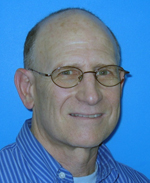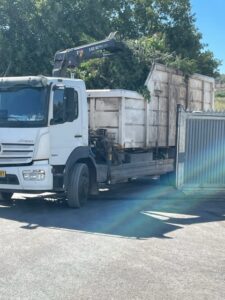
KFAR SABA, Israel — Colleges began offering “majors” and “minors” in sustainability in the first decade of the 21st century. Sustainability is taught as a multi-disciplinary program to approach complex problems, usually environmental. With that knowledge, it can offer various career possibilities. One of our son Saul’s best friends, Yonathan, majored in sustainability and political science at Israel’s IDC college, now Reichman University. This school, located in Herzliya near Tel Aviv, was started as the Israeli counterpart to America’s Ivy League schools. More than a quarter of the school’s undergraduates are international students, many from the U.S.
What is sustainability? In the broadest sense, sustainability refers to the ability to maintain or support a process continuously over time. In business and policy contexts, sustainability seeks to prevent the depletion of natural or physical resources, so that they will remain available for the long term.

Recently, Michal, Saul and I visited Yonathan at Compost-Carmel near the town of Binyamina, where he manages the operation. The factory is part of the Beth-El Group, which owns seven factories and other businesses and is the second largest employer in the nearby, picturesque Carmel Mountain town of Zichron Ya’acov. The Beth-El Group is the business branch of the Beth-El Kibbutz, which, uniquely, is a Christian Zionist kibbutz. The kibbutz has German roots and was founded in 1963.
What’s special about Yonathan? In his mid-30s, Yonathan is one of Saul’s closest friends of about 30 years. They met on the first day of school in Alfe Menashe, both of them being recent olim (immigrants) to Israel entering 1st grade. Yonathan had the advantage of being a native-born Israeli with mother-tongue Hebrew. He, his sister and parents had recently returned from a sojourn in Wisconsin, his father Ephraim’s home state. Yonathan’s mom, Rimona, was an Israeli who spent her high school years in Britain, where her father was a diplomat. They have remained close friends of ours although we both relocated.
The two boys spoke English to each other at first but soon dropped that for Hebrew. After graduating high school in nearby Kfar Saba (where Michal and I now live) both boys did their compulsory army service. While Saul was in the Paratroop Brigade, Yonathan was charged with training new soldiers for specialized infantry units.
What’s special about Compost-Carmel and what does it have to do with sustainability? When vegetative clippings like branches and leaves are put out in the trash with everything else, they are adding to the problem of waste. But when treated properly, the result is mulch or compost, a valuable, useful product usually used to fertilize and improve the soil. It can be used to replace chemical fertilizers. It doesn’t add to the incredible amounts of waste that are choking most countries. It’s an ideal example of utilizing by-products instead of throwing them away. And, it’s a money-making proposition instead of a huge financial burden. It helps, not hurts, the environment.
The company’s end product is used as mulch, to retain moisture in the soil, suppress or block weeds, keep the soil and plant roots cool, prevent damage from frost in winter, and make the garden bed and landscape look more attractive; or as fertilizer and other products.
Compost-Carmel uses the windrow composting method for its vegetative clippings, collected on a regular basis from nearby communities, as well as from landscapers who have clippings to be disposed of. Organic waste — meat, animal manure, bio-solids, and food scraps — are not utilized at Compost-Carmel. As such, Beth El’s factory is the only one of its type in Israel and is probably the largest of its type in the Middle East.
Windrow composting is an open-air process that places the composting material into long piles approximately 5 feet high called “windrows.” The windrows are turned regularly to ensure that all the composting materials spend some time in the warm, moist center of the pile. There, bacterial activity produces heat that encourages further breakdown. Because yard and garden waste are the basic materials, bad odors are minimized, if not eliminated.
Yonathan showed us the whole process: the container trucks unloading their cargoes into bays, the bulldozers moving the material to the area around the machine which produces wood chips, then moving the chips to the windrows, where they will eventually be turned into brick-shaped pellets which can be used for fuel, or bagged for usage in gardens and planters.
When I asked Yonathan about his goals for the future in the company, he surprised me (I shouldn’t have been surprised) by saying that he was perfectly satisfied with his hands-on position, working outside — not in an office — and working up a sweat while supervising and helping his workers. To be in charge of the larger operation would mean sitting indoors behind a desk; not the place where a hands-on guy like Yonathan chooses to be.
“Sustainability” is much more than a recent buzzword. It’s an ecosystem, a lifestyle, a community that supports itself and its surroundings. There are many systems and projects ongoing in Israel that embody sustainability in their DNA. I’ll mention just a few under the heading of water management, a field in which Israel is perhaps the world leader.
In response to the region’s water scarcity, Israel has developed an innovative water strategy through advances in desalination, recycled water use, and efficiency. There are five operating desalination plants along its Mediterranean coast, with more in the pipeline. With so many plants, the cost of desalinated water in Israel is substantially lower than it is in much of the world. Most of the residential water used in Israel comes from these desalination facilities. What’s more, 80-85% of the water for residential use is then recycled and used for irrigation. (For comparison, France currently only reuses about 1% of its wastewater, which is much lower than neighboring countries Spain and Italy, which reuse around 10 percent.)
Once a water-scarce nation, due to innovation Israel has become a water-rich nation and now is leveraging its expertise and resources to improve relations with its neighbors, including Jordan and the Palestinian Authority, which each receive millions of cubic meters of water annually. Long-term, the Red Sea-Dead Sea project is intended to assist Jordan in building a desalination plant in the Red Sea, which will allow the two nations to trade water, increasing water availability and reliability as well as strengthening the relationship between the two countries and maintaining peace.
In the Arava Valley of Israel’s Negev Desert, many hundreds of families living in seven communities are involved in a variety of farming pursuits on about 10,000 acres of cultivated desert land., mainly using drip irrigation, which was developed in Israel and is exported world wide. This produce is mostly destined for export to Europe, the U.S. and Russia, and constitutes about 60% of the total export volume of fresh vegetables from Israel.
Sustainability is something that humanity must address; people like Yonathan are putting it into action. We will run out of fossil fuels eventually. So far the alternative energy substitutes for fossil fuels leave a lot to be desired. They often rely on weather conditions; they may contain rare minerals which are themselves not replaceable; and they may be mined by laborers who are very young, poorly paid, and often exploited. Until we are able to harness nuclear fission, fusion, hydrogen, algae power, or something not yet even thought about, the human species needs to utilize what knowledge and methods that we do have. Compost-Carmel and people like Yonathan are doing just that.